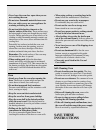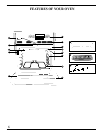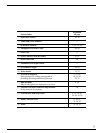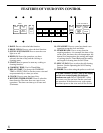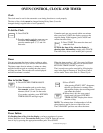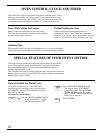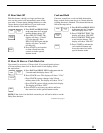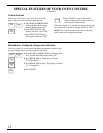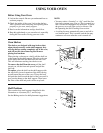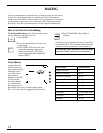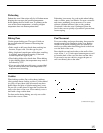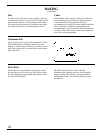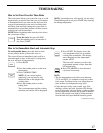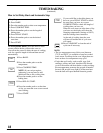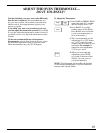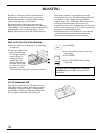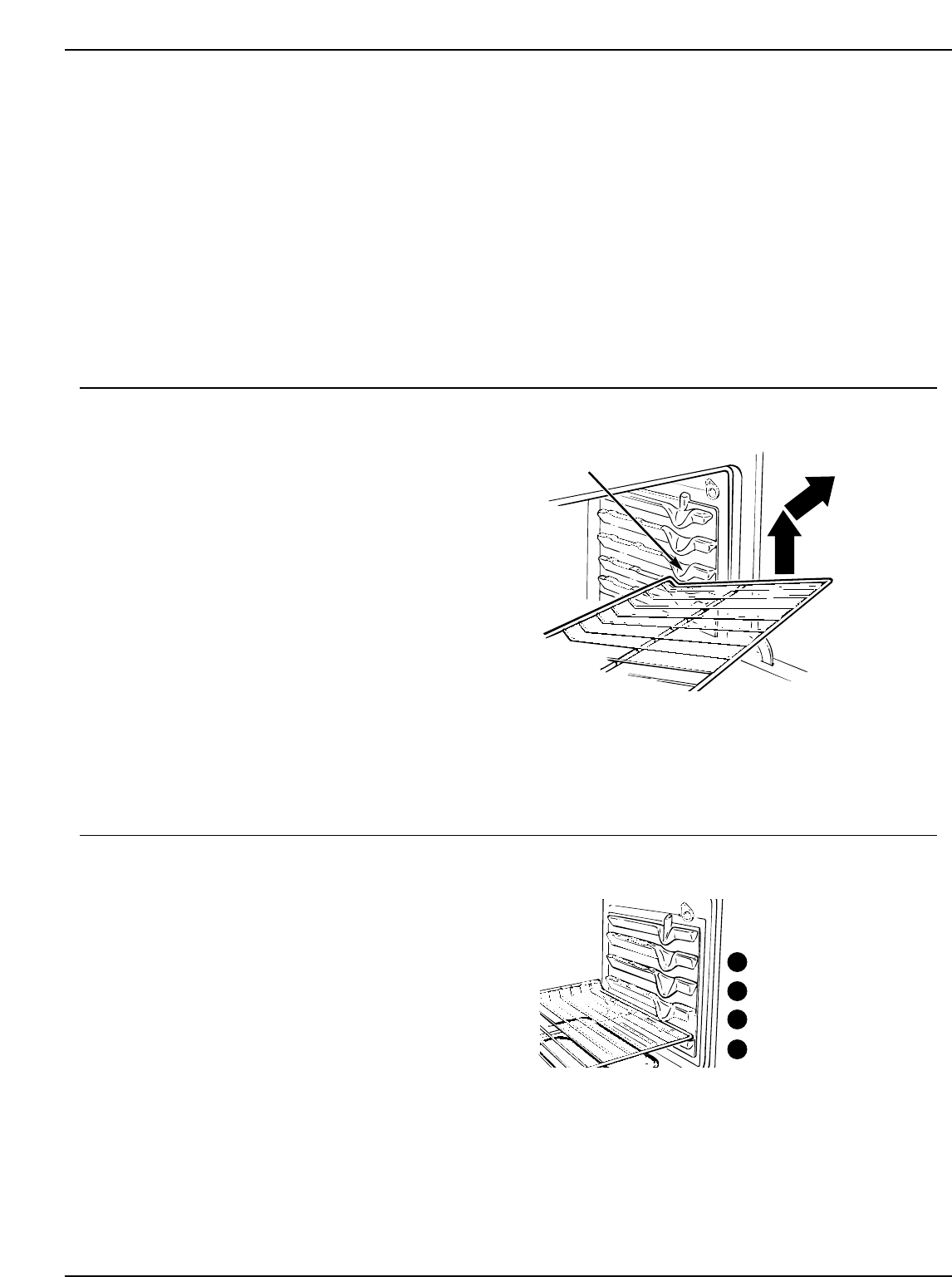
USING YOUR OVEN
Before Using Your Oven
1. Look at the controls. Be sure you understand how to
set them properly.
2. Check the inside of the oven. Look at the shelves.
Take a practice run at removing and replacing them
properly to give sure, sturdy support.
3. Read over the information and tips that follow.
4.
Keep this guide handy so you can refer to it, especially
during the first weeks of using your new oven.
NOTE:
• You may notice a “burning” or “oily” smell the first
few times you turn your oven on. This is normal in a
new oven and will disappear in a short time. To speed
the process, set a self-clean cycle for 4 hours. See
the Operating the Self-Cleaning Oven section.
• A cooling fan may automatically turn on and off to
cool internal parts. This is normal, and the fan may
continue to run even after the oven is turned off.
Oven Shelves
The shelves are designed with stop-locks so that,
when placed correctly on the shelf supports, they
will stop before coming completely out of the oven,
and will not tilt when removing food from or
placing food on them.
When placing cookware on a shelf, pull the shelf out
to the bump on the shelf support. Place the cookware
on the shelf, then slide the shelf back into the oven.
This will eliminate reaching into the hot oven.
To remove the shelf from the oven, pull the shelf
toward you, tilt the front end upward and pull the
shelf out.
To replace, place the shelf on the shelf support with
the stop-locks (curved extension of the shelf) facing
up and toward the rear of the oven. Tilt up the front
and push the shelf toward the back of the oven until it
goes past the bump on the shelf support. Then lower
the front of the shelf and push it all the way back.
13
Bump
Shelf Positions
The oven has four shelf supports identified in this
illustration as A (bottom), B, C, and D (top).
See the Baking section for shelf placement suggestions.
B
A
C
D



